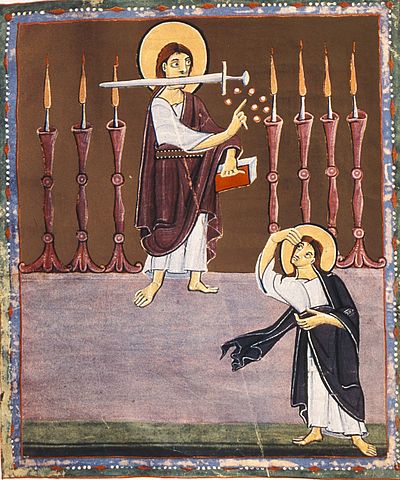The term “Son of Man” has profound religious and symbolic significance in various cultural and religious contexts, most notably in Christianity and Judaism. It is often associated with themes of divinity, humanity, and messianic figures. Here’s an exploration of the power and significance of the “Son of Man”:
Biblical Origins:
In the Christian Bible, the term “Son of Man” is frequently used in the New Testament, primarily in the Gospels. It is a title that Jesus Christ often applied to himself. This usage has theological implications, as it underscores the dual nature of Jesus as both divine and human.
Messianic Figure:
In many prophetic passages in the Old Testament (Hebrew Bible), the term “Son of Man” is used to describe a messianic figure who will come to fulfill God’s divine plan. In Christianity, Jesus is often seen as the fulfillment of these messianic prophecies.
Humanity and Divinity:
The use of “Son of Man” emphasizes the humanity of Jesus, as he was born of a woman and experienced the human condition, while also acknowledging his divine nature as the Son of God. This duality underscores the Christian belief in the Incarnation, where the divine took on human form.
Redemptive Role:
The “Son of Man” is often associated with a redemptive role, serving as a savior figure who brings salvation, reconciliation, and hope to humanity. In Christianity, Jesus is seen as the ultimate redeemer.
Symbol of Authority:
In biblical and religious contexts, the title “Son of Man” is associated with authority, as seen in passages where Jesus uses it to assert his divine authority and mission on Earth.
Interfaith Significance:
While the term is most commonly associated with Christianity, it also has significance in Judaism. In Jewish literature, it can refer to a representative figure who stands before God. It symbolizes human beings’ close relationship with the divine.
Cultural and Artistic Representation:
The “Son of Man” has been a subject of numerous artworks, literature, and cultural interpretations throughout history. It has inspired artists, theologians, and writers to explore the themes of divinity, humanity, and redemption.
The Power of Faith:
For many believers, the concept of the “Son of Man” represents the power of faith, the promise of salvation, and the hope for a better future. It serves as a source of spiritual strength and guidance.
In conclusion, the “Son of Man” is a term that carries profound religious and symbolic significance, representing the intersection of divinity and humanity, the promise of salvation, and the redemptive role of a messianic figure. Its power lies in its ability to inspire faith, hope, and a deeper understanding of the relationship between God and humanity.











